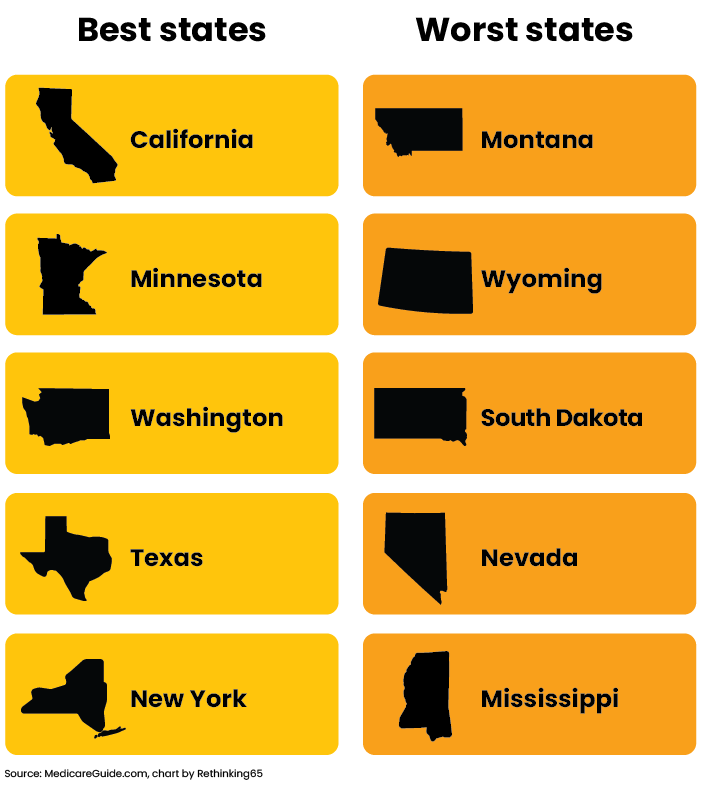We don’t know the future of long-term care in the nation. But we do know demand keeps growing. According to a recent Urban Institute study, Men who turn 65 will spend an average of $142,000 on long-term care needs like nursing and help with daily activities. And for women, the number is even larger at $176,000.
The Biden Administration proposed spending $400 billion over eight years on home and community-based services.
“The proposal is in its early stages and doesn’t provide details on where to allocate funding,” says Jeff Smedsrud, healthcare veteran and co-founder at HealthCare.com. “Whether it goes towards strengthening the workforce, eliminating waitlists, addressing inequities of the current system, or expanding services is unclear.”
LTC Now
While we wait for Congress and the Biden Administration to act on the future of long-term care, we ask which states currently provide the best and worst long-term care NOW?
Our team at MedicareGuide.com, an expert-reviewed content resource site, analyzed data from government sources, including the Center for Medicare and Medicaid Services (CMS) and Kaiser Family Foundation, to see where adults receive the best long-term care. The data shows California, Minnesota, Washington, Texas, and New York lead the pack.
We compared all 50 states and Washington, D.C., across 27 cost, access and quality measures.
Our team analyzed data to get a clear sense of long-term care in the nation.
Costs include assisted and community living, adult day care, and home health aides.
Access factors including Medicaid expenditures as well as skilled nursing facilities and nursing/assisted homes per capita.
Quality factors that looked at support for family caregivers and measurements of activities of daily living.
Washington is the first state to leap forward by introducing the Long-Term Care Trust Act in 2022. Starting January 2025, each person eligible to receive the benefit can access services and support costing up to $36,500. This act is aimed to help with extended hospital stays, rehabilitation, and assisted living by implementing a tax on employee wages.
Confusing System
Our current healthcare system for the aging population can be comprehensive yet confusing. A lot of folks, unfortunately, assume that all their care will be covered somehow.
There’s a common misconception that Medicaid and Medicare delivers a lot of long-term care benefits.
“Unfortunately, individuals or their families bear most of the costs. Saving for retirement is important, but you should also save for long-term medical expenses. You can start doing this with a health savings account, which shelters funds in a tax-free environment until age 65,” Smedsrud notes.
“Only a select number of Americans can afford long-term care insurance. Most people get help from their spouses, children or siblings. But that may change over time.”
You can explore more tips and policy outlooks from our expert panel. Our complete analysis also provides interactive visualizations to learn how we calculated long-term care’s best and worst states.
Michael LaPick is the content marketing manager of HealthCare.com, a broker, marketer and developer of health insurance products.








